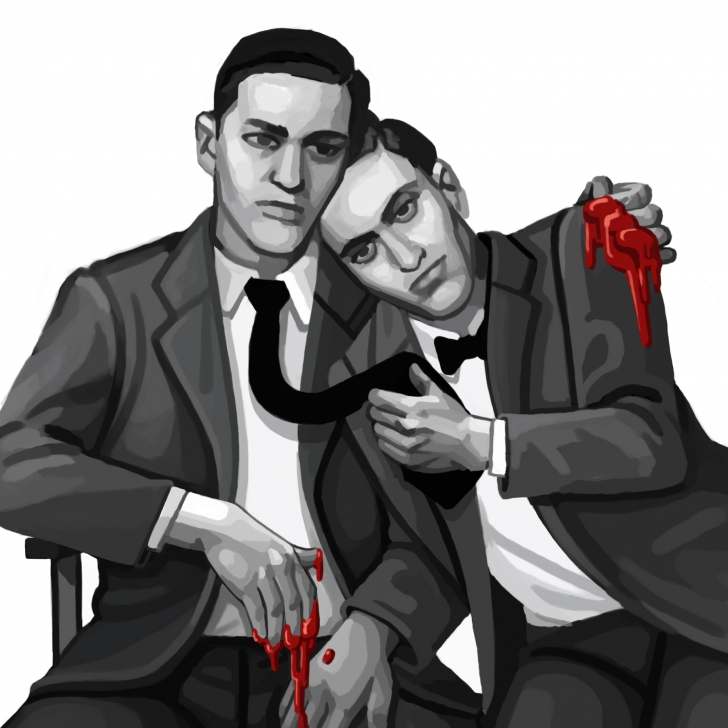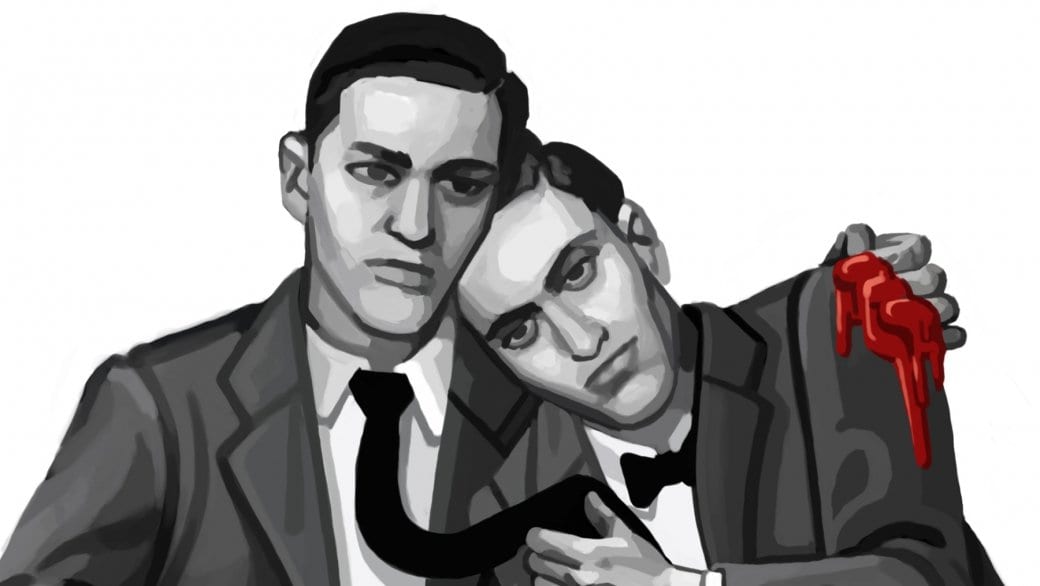Like all homosexuals, I desire to commit all sorts of atrocities. I spend my free time sending money to neo-Nazi groups, burning down neighbours’ houses, and trying desperately to decide once and for all which of my many machine guns is my most favouritest.
It’s ridiculous, but this is what people thought when two university students, Nathan F Leopold and Richard Loeb, murdered 14-year-old Bobby Franks in Chicago in May 1924; the public considered it an unsurprising act for people with their sexual orientation.
Leopold (1904–1971) was highly intelligent and came from a wealthy Chicago family. He enrolled at University of Chicago at age 15. By age 18, he was an authority on birds, having published in the ornithological journal The Auk.
Loeb (1905–1936) had a similarly privileged background and was just as precocious as Leopold. He began his studies at U of C at age 14. He didn’t enjoy his time there and soon transferred to University of Michigan, where in spite of spending most of his time reading crime novels, he became the school’s youngest ever graduate, earning his BA in 1923. He then returned to U of C to take graduate courses.
The two young men lived in the same neighbourhood, but didn’t become close friends until 1920 at U of C. They began an intense affair — more intense for Leopold. The small, socially-awkward Leopold fell in love with the charismatic, handsome Loeb, his desire only growing keener during Loeb’s stint away at U of M.
Keen enough that Loeb, who dreamt of becoming a master criminal, could easily use the promise of sex to manipulate Leopold into assisting with petty crimes, such as theft and vandalism. Leopold rationalized his participation in these ventures with an alarmingly half assed understanding of the philosophy of Friedrich Nietzsche: He thought that getting away with crime made him an Übermensch.
By late 1923, Loeb was itching to do something that would get the world’s attention. After months of planning, they kidnapped young Bobby Franks, Loeb killed him, and they dumped the body in a remote area where Leopold sometimes bird-watched. The next step was to demand $10,000 in ransom (though they had always intended to kill the victim), but they didn’t get very far with that part of the plan, because the body was quickly discovered.
Despite their scheming and supposed brilliance, the police were soon on to them, having found Leopold’s glasses, which he dropped near the body. With evidence against them piling up, they both confessed.

The “trial of the century” (as many trials seemed to be in those days) began July 21, 1924. Leopold and Loeb’s attorney was the famous Clarence Darrow of the Scopes Monkey Trial. Darrow probably took the case mainly in order to fight the death penalty (a cause he believed in), which the young men could have easily gotten. He succeeded in saving their lives. The judge gave them each life sentences for murder, plus 99 more years for kidnapping and ransom.
The murder was popularly labelled a “thrill killing,” a murder motivated by the excitement of killing (an unlikely explanation, given they probably killed Franks only to decrease the likelihood of being caught). Even though they had no sexual contact with Franks, there was also a vague link drawn between their homosexuality and the crime, whereby the mere fact of being gay was deemed sufficient explanation for why they’d commit murder.
Today we can see that this link is obvious nonsense, but Leopold’s actions muddy the water. He gave his support in exchange for gay sex. Doesn’t that mean gayness made him commit his part in the crime? No, it just means that, for whatever twisted reason, he allowed himself to be bought cheaply. It’d take a lot more than a penis in the butt to convince even the most cock-hungry bottom to help with murder.
While strange and exciting ideas of thrill killers and murderous perverts played themselves out in the minds of the masses — providing inspiration for such films as Alfred Hitchcock’s Rope (1948) and Richard Fleischer’s Compulsion (1959) — Leopold and Loeb went off to prison. Loeb was killed by his cellmate in 1936, but Leopold behaved so well that, in spite in the judge’s recommendation that they never be granted parole, he was released after only 33 years, in 1958. To avoid media attention, he moved to Puerto Rico, where he lived in obscurity until he died of a heart attack in 1971.


 Why you can trust Xtra
Why you can trust Xtra


